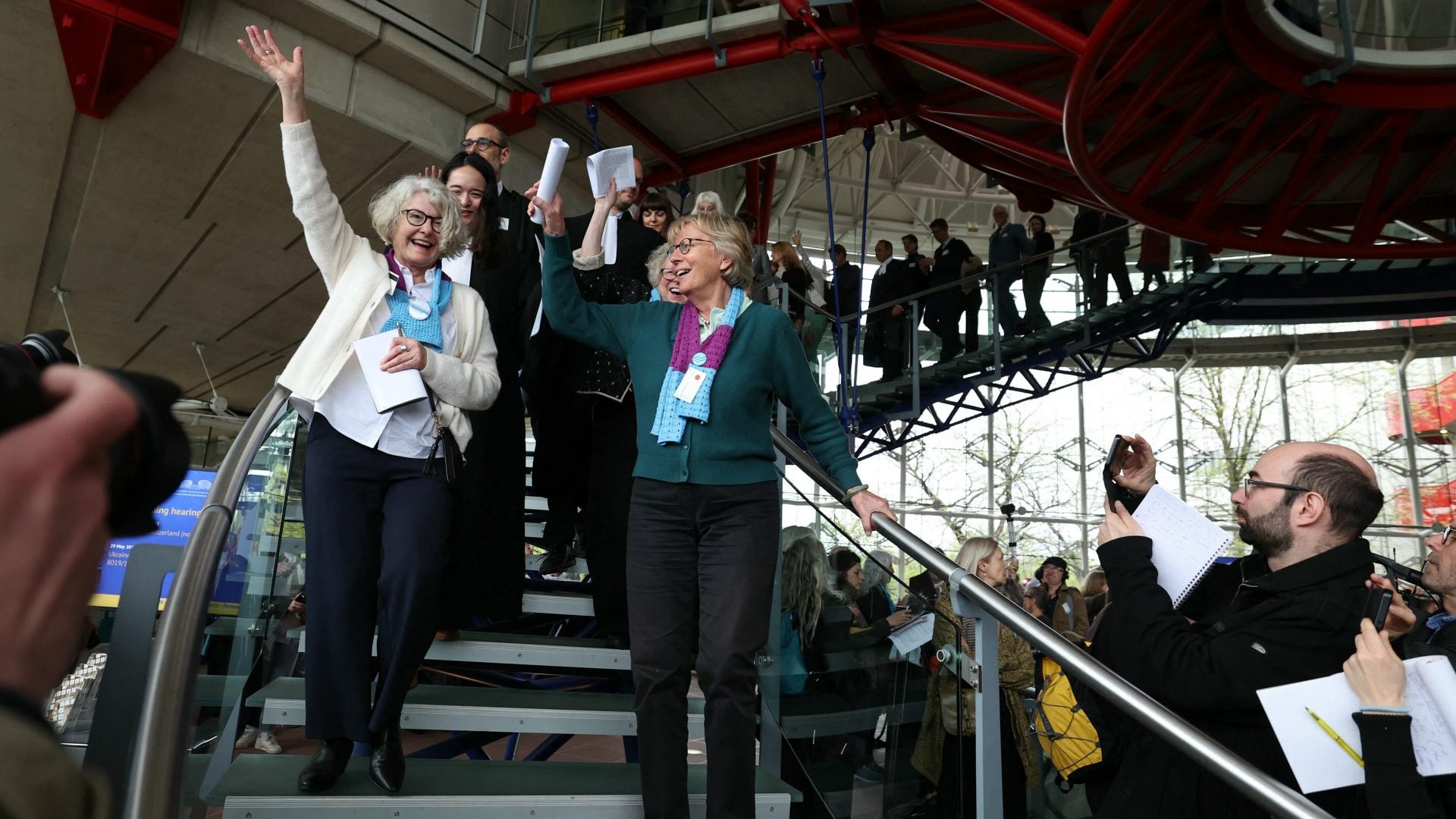Climate activists across Europe were celebrating what looks like a significant victory on Tuesday – for the first time, the European Court of Human Rights has ruled against Switzerland, for not doing enough to tackle climate change.
The case was brought by a group of pensioners in the country, who complained heatwaves – exacerbated by climate change – limited their ability to enjoy fundamental rights, including to see their families, by confining them to their homes. Their quality of life (and in some cases, their health) had clearly suffered as a result, and this innovative case tied that to Switzerland’s progress on climate change – especially commitments it had made in international treaties to take action.
It is not hard to see why at face value this looks like a good case for those of us who care about minimising the potentially catastrophic impacts of climate change. If a court with actual powers has decided to make sure governments live up to commitments they make in treaties, surely that is a good thing? Perhaps unsurprisingly, the reality is more complicated.
Having spoken to several legal experts, the ruling is – to say the least – an ambitious interpretation of the court’s remit. A key principle of most court systems is the idea of standing: someone must show the issue at hand has directly affected them, and then the court will determine whether or not that was legal.
The ECHR has had to be very creative to allow standing in this instance, given that in reality no particular weather event can be attributed to climate change. Furthermore, climate change does not respect national boundaries – for a small country like Switzerland, even if it had worked to already reach net zero, it would barely have mitigated climate change.
The court ran through various loops of logic to find a justification to intervene in this case, and then it went even further to rule in the claimants’ favour – essentially saying that the heatwaves had infringed on the human rights of the pensioners, and by not having done as much as other ECHR states with which it had signed climate treaties, the Swiss government had some responsibility for that deprivation of rights.
Critics have been quick to point out that this reasoning, if applied more widely, would allow the court to intervene on almost any policy area it so chose, in any ECHR member state, if only the right claimants appeared before it with an amenable case. Getting rid of both the need of standing and the need to directly link the government action (by the time a case gets to the ECHR it is always versus a government, even if the initial case was against a private entity) leaves the court, in theory, unfettered.
Climate activists might still celebrate this: it is tempting to think that even if it comes with downside risks of overreach that if this ruling is good, it might be worth it. After all, if something makes climate promises in treaties binding, that must be positive?
Perhaps – but perhaps not. If the ECHR looked like it could take serious punitive action in response to cases like this one, then it would give any ECHR signatory state reason to pause when making promises in future international summits. That could lead to watered-down future treaties, an absence of treaties at all, and yet another hurdle to pass to make any progress.
The reality is likely to be more prosaic, if just as dismal: it is likely that with this ruling the ECHR has overreached, and in doing so will make it easier for states to ignore its rulings – which like most international legal rulings, are incredibly hard to enforce.
The ECHR is one of the last functional international bodies – the WTO and UN are on their knees – but it will not take much overreach to mark its collapse, too. Only one judge (a Brit) wrote a dissent from the ruling on the Swiss case, but his conclusion was sufficiently stark, at least by the rarified standards of official rulings, that I’ll give him the last word:
“While I understand and share the very real sense of and need for urgency in relation to the fight against anthropogenic climate change, I fear that in this judgement the majority has gone beyond what it is legitimate and permissible for this Court to do and, unfortunately, in doing so, may well have achieved exactly the opposite effect to what was intended.”











